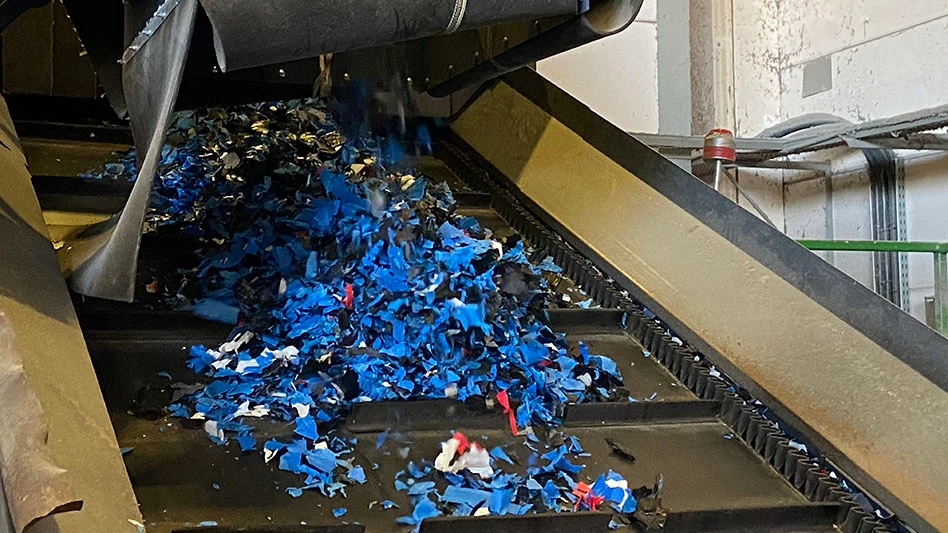
Recycling Today archives
The Institute of Scrap Recycling Industries (ISRI) and the Association of Plastic Recyclers (APR), both based in Washington, have worked together to make modifications to plastic scrap grades used in trading by members of both organizations.
The changes to the ISRI Specifications and to the APR Model Bale Specifications were the result of a collaborative process between the two organizations and their members, and the specifications were approved separately at October board meetings for both organizations.
“These specification updates are intended to more accurately reflect the recycled polypropylene [PP] and mixed rigid plastics currently being traded in the marketplace,” ISRI says.
In the ISRI specifications roster, grades affected are known as PP small rigid plastic, mixed small rigid plastic and mixed bulky rigid plastic.
For ISRI, its mid-November announcement regarding the changes serves as the 30-day public notice as required by the stated rules governing the procedures from the addition, amendment or withdrawal of ISRI’s specifications.
“These most recent ISRI and APR specifications updates align with the recycled materials industry focus on technological innovations and Design for Recycling,” ISRI President Robin Wiener says. “The changes announced reflect the ongoing review by dedicated volunteers in ISRI’s Plastics [chapter] and our partnership with the APR. Our partnership allows us to work together to strengthen our specifications.”
The three proposed revisions replace several existing PP and mixed-rigid specifications to reduce confusion and better reflect the scope of what is traded and processed in today’s marketplace, ISRI says.
“As a result of technological innovations, including optical sorters, robotics and the application of artificial intelligence (AI), the industry can now sort and process plastics for recycling more effectively than ever before,” the association adds.
However, continually evolving packaging and recycling streams mean updated bale specifications and recycling-compatible package design remain critical to maintain and improve recycled material quality, it notes.
“We are pleased to continue collaborative efforts with ISRI to facilitate recycled market consistency and quality," APR President and CEO Steve Alexander says. "It is also essential to note that items listed as commonly accepted should be designed to be compatible with the recycling stream so they don’t contribute to reduced yield or quality of recycled material which is required to align with the APR Design Guide for Plastics Recyclability.”
Both groups say specifications facilitate communication between material recovery facilities (MRFs) and plastics reclaimers by describing what materials are commonly accepted. Specifications also are designed to convey the contaminants that are tolerable at low levels and those that are prohibited because they are difficult or dangerous for reclaimers to manage.
Latest from Recycling Today
- Aqua Metals secures $1.5M loan, reports operational strides
- AF&PA urges veto of NY bill
- Aluminum Association includes recycling among 2025 policy priorities
- AISI applauds waterways spending bill
- Lux Research questions hydrogen’s transportation role
- Sonoco selling thermoformed, flexible packaging business to Toppan for $1.8B
- ReMA offers Superfund informational reports
- Hyster-Yale commits to US production





